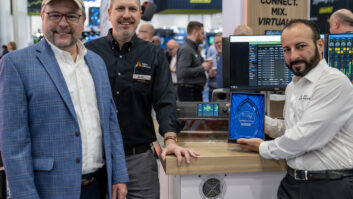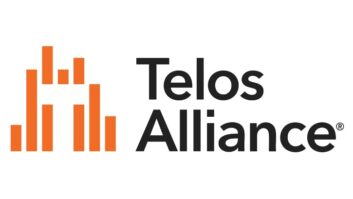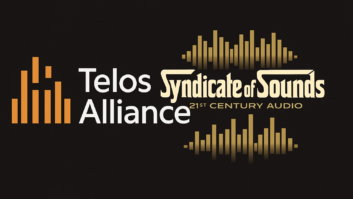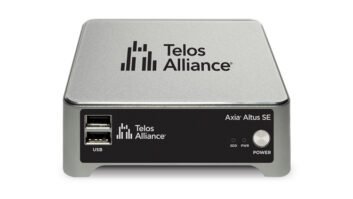Nautel and Telos Alliance say it is possible to move the entire HD Radio air chain into a virtual environment; and they offered a “concept demonstration” this week to support the idea.
During a webinar, the technology firms showed what they describe as “the world’s first cloud-based, time-locked FM+HD Radio air chain.” Their demo included two “failover” events to show that program continuity can be maintained in the case of a problem.
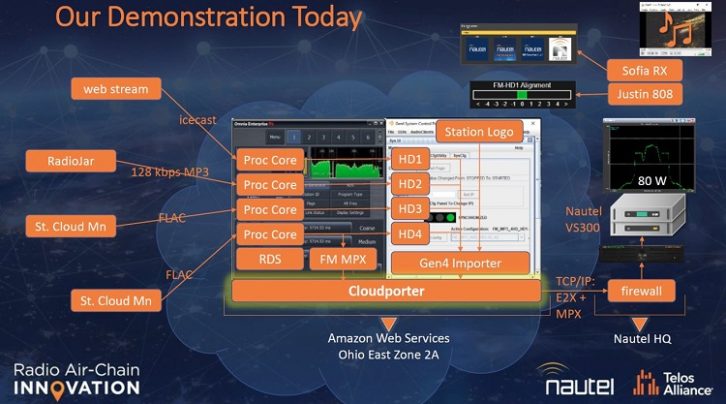
The companies say their work on this project anticipates easier and more flexible digital radio deployments via virtualized audio processing and software-based Gen4 HD Radio importer/exporters. You can view the webinar at www.nautel.com/resources/webinars/.
Nautel makes FM and AM radio broadcast transmitters. Telos Alliance is an audio technology company whose brands for radio include Axia Audio, Omnia Audio, Telos Systems and 25-Seven Systems.
Their announcement was made by Marty Sacks, EVP of sales, support and marketing at Telos Alliance; Philipp Schmid, Nautel’s CTO; and Kevin Rodgers, Nautel’s president and CEO.
Rodgers said broadcasters would benefit through potential cost savings and because virtualization would make operation of multiple stations easier and allow “near-instantaneous” upgrading of services with little downtime.
“The flexibility and ease of transitioning to HD Radio become simpler than ever, allowing broadcasters to scale their operational requirements up and down as needed and offering new revenue opportunities,” he said in the announcement.
In reviewing context of this work, Nautel and Telos noted that cloud operation is well established at IT and business firms that manage large amounts of data. And Sacks said interest among broadcasters was already growing before the pandemic and has only increased since spring, when virtualization techniques enabled air talent to work from home.
“The combination of AoIP, networkable products and servers, either in house or cloud, made it possible to continue operating regular programming, both locally and on a network level, despite a forced decentralization of staff,” he said.
Prior to this week, Nautel and Telos Alliance demonstrated a way to eliminate time alignment drift by locking the FM and HD1 signals using software-implemented audio processing and a Nautel Gen4 HD MultiCast+.
This week’s demonstration, they said, built on that, showing how this time-locked air-chain “could be hosted in the cloud, utilizing the Telos Alliance Omnia Enterprise 9s high-density audio processor, a software-based Gen4 Importer/Exporter, and Nautel technology all running on the Amazon Web Services platform.”
The companies emphasized that further development work and the release of additional products will be needed prior to full deployment.
Schmid of Nautel also emphasized the importance of “failover” in a robust virtual network, referring to a system’s ability to switch to backup paths when there’s a problem.
“Our demonstration clearly showed the inherent availability of backups in a cloud-hosted air-chain. We included two failover events, switching our air-chain from Ohio to Brazil, then to a Nautel HD MultiCast+ acting as a physical resilient node. In all cases, the program flow was only briefly interrupted.”



